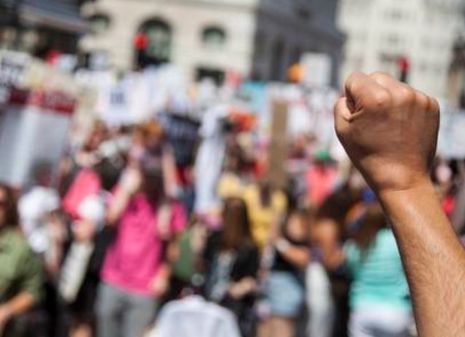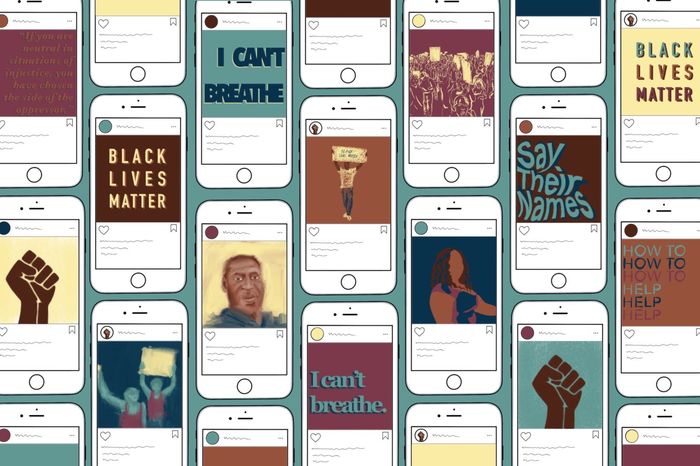Balancing academic and political responsibilities
Incoming fresher Safa Al-Azami discusses how she plans to combine her studies with her compulsion to fight for causes she cares about after starting at Cambridge.

In an era of political turmoil such as ours, nobody can afford to be complacent — least of all young people, who are often unfairly labelled apathetic by those in power. Faced with the inequalities that the pandemic has exposed, the looming climate crisis, and ongoing struggles against racism, it is often exhausting to keep engaged. Even when I’m mercifully free from academic responsibilities, as I am now, the constant flurry of alarming news stories can become overwhelming. Returning to, or — if you’re a Fresher like me — starting university, will inevitably take over our lives to the point where it becomes difficult to keep up to date with the depressing march of the news.
"The difficulty of maintaining momentum over a video call makes activism a more tiring process than ever."
Before the pandemic, I envisaged getting involved with as many student politics groups or student campaigns as I could. I imagined that the many opportunities to pursue activism within university would enrich my social life rather than clashing with it. Of course, these avenues still exist, but the pandemic has forced many events to move to Zoom and other online platforms. ‘Zoom fatigue,’ and the difficulty of staying attentive and maintaining momentum over a video call, make activism a more tiring process than ever.
During A-levels, I found it difficult to keep myself informed and engaged. Still, to keep up with current affairs had become an obligation; a necessary demand of the HSPS admissions process. After December, I barely had time to do anything but put my head down and get through my exams. My engagement with my usual extra-curriculars — my local political party, youth council and my schools politics society — began to slip. Since politics is my main interest, I was able to stay up to date much more easily than my friends who were inclined towards other routes, but I understand how difficult it is to strike a balance.
This pandemic opened many eyes to the need for activism. All over social media, young people were increasingly sharing petitions, places to donate, vital information, and more to keep everyone aware. This came largely as a result of the Black Lives Matter movement, but continued to reach almost every area of activism. There were dangers, of course, such as the spread of false information and the worry that activism was becoming performative. But for the most part, I saw a general rise in the engagement and passion of young people with respect to issues that mattered to them, be it racism, climate change, or anything else. And this had monumental impacts. As people across the world gathered to protest against racism, those who had experienced it were inspired to speak up, to challenge the institutions which have failed to confront discrimination. Young people became tremendously politically engaged, and it is important that this momentum continues even as we start returning to a ‘new normal.’
"We have to ensure we make our mental health our first priority."
Often, the huge problems we’ve identified seem impossible to solve, and this makes our activism seem pointless. To tackle this, we have to ensure we make our mental health our first priority. Instead of burning ourselves out, we’ll be more productive when we feel healthy and confident about the impact we can have. Even if we are unable to see it immediately, we should not be defeatist, because we can have an impact. Almost every great movement for change and equality began as protests, composed of ordinary individuals like ourselves. These protests should not be underestimated as tools for change.
Other times, there are so many places to focus our passion that we become overwhelmed and do not have the energy to invest our hopes into all the necessary issues. This is why it is useful to channel most of our activism into one or a few areas. This doesn’t mean we become complacent on everything else, but it means we can direct our energies to the causes we are more passionate about and can advocate for more effectively. As a Bengali immigrant, I know that one of the issues I will speak out about the most is racism, particularly as I move from the diverse city of Manchester to the less multicultural Cambridge. As students, we can make real and direct changes by getting involved in university-specific campaigns. This is one of the best and easiest ways of getting involved when under academic pressure. Often, smaller, more local changes can have an influence elsewhere and create a ripple effect that leads to wider change.
Over lockdown, I’ve been inspired to take action in numerous ways. I spoke to my school about how they can combat racism. I resumed involvement in a youth voice organisation of which I am a part, YouthPolitics UK, where I gave an online workshop on effective activism. I started speaking out about pervasive issues I’d stayed silent about in the past, such as classism and inequality. My activism flagged in year 13, but I revived my passion during this break, and am determined not to forget the political responsibilities I have.
While it seems that being involved in politics is getting more difficult and will continue to do so as the academic year begins, there is always something you can do. This can be as simple as informing yourself on an issue, or starting a conversation on a subject that needs to be addressed. 2020 has brought many of these issues to light, and it is important that we use this to channel our passion and indignation into positive change.
 News / Eight Cambridge researchers awarded €17m in ERC research grants27 December 2025
News / Eight Cambridge researchers awarded €17m in ERC research grants27 December 2025 News / News in Brief: carols, card games, and canine calamities28 December 2025
News / News in Brief: carols, card games, and canine calamities28 December 2025 News / Caius mourns its tree-mendous loss23 December 2025
News / Caius mourns its tree-mendous loss23 December 2025 News / Clare Hall spent over £500k opposing busway 24 December 2025
News / Clare Hall spent over £500k opposing busway 24 December 2025 Interviews / Meet Juan Michel, Cambridge’s multilingual musician29 December 2025
Interviews / Meet Juan Michel, Cambridge’s multilingual musician29 December 2025









